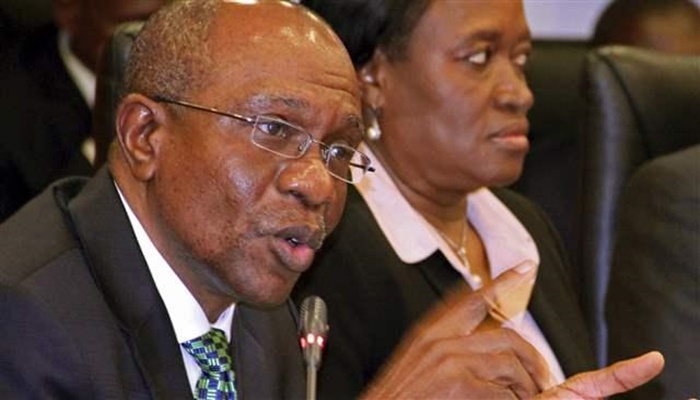
The Payments System Vision 2020 (PSV2020) initiative of the Central Bank of Nigeria (CBN) has been described as a catalyst in the revolutionized payment system landscape of the country. Niyi Olaoye therefore looks at the apex bank’s implementation plan and the possibility of the vision.
The Payments System Vision 2020 (PSV2020) initiative of the Central Bank of Nigeria (CBN) has been assessed to be an initiative coming with a lot of benefits. One of its main benefits is to facilitate economic activities.
The PSV2020 is structured to provide a safe and efficient mechanism for making and receiving payments with minimum risks to the central bank, payment service providers and end user. In order to spread the gospel of PSV 2020, the apex bank recently organised a workshop for the financial journalists and other stakeholders, which is in line with the implementation plans for an efficient payment system in Nigeria.
Isaac Okoroafor, Acting Director, Corporate Communications, the Central Bank of Nigeria (CBN), who made the observation at the workshop, reiterated that the core objective of PSV2020 was to make Nigeria’s payments system “nationally utilized and internationally recognized”.
In his words: “It is gratifying to note that our country is not only acknowledged as a major economic force within Africa, but also increasingly becoming an active player in the global economy and to participate actively, our payments system must be successfully bench marked against the global best practices.”
Okoroafor further noted that through the implementation of the original PSV2020 initiatives by the CBN, in association with the banking community, Nigeria has witnessed an impressive growth of electronic payments and a shift from the overwhelming dominance of cash as a means of payment.
He listed the implementation of the Nigeria Uniform Bank Account Number; deployment of the real time gross settlement system where transfer of money or securities take place from one bank to another on a “real-time” and on “gross” basis, without waiting period; and the popular cash-less policy as part of the achievements of the vision.
Others were the deployment of the scrip-less Securities Settlement System; introduction of Cheque Truncation, which reduced clearing cycles for Automated Clearing House payments and cheque from three days (T+2) to next day (T+1); and enthronement of limits on encasement of third party cheques and a maximum cap of N10 million for cheque payments, to encourage the use of electronic payments channels.
Busines247 News Online also recalls that there were also the adoption of mobile money as a major channel for delivering financial inclusion; support for the implementation of the Federal Government’s Treasury Single Account; and migration of all payment cards from magnetic stripe technology to Chip-and-PIN, otherwise known as EMV, due to the assessed weaknesses of the former.
According to him, though the system has recorded some significant achievements so far in this journey, “a lot still remains to be done and we do not intend to rest on our oars”.
However, the new focus, which emerged from a detailed assessment of the Nigerian payments infrastructure, identified eight new industry verticals aimed at advancing the adoption of the electronic payments in Nigeria.
Similarly, Mr. Musa Jimoh, the Deputy Director and Head, Payments System Policy Oversight, Banking and Payments System Department, who is also a speaker at the workshop, pointed out that in agriculture sector, the focus would be to develop electronic payment methods to support the value chain from inputs to tertiary production and supply, while a cashless model for Smart Cities will be developed.
For the smart cities scheme, the focus will be on both existing cities and “greenfield cities”, to ensure that less cash is used as a means of payment in retail outlets, transportation, and food.
Jimoh said that the government’s cash flows would be reformed to ensure adoption of end-to-end electronic channels for all forms of salaries, pensions, suppliers, individual and business taxes payment and collection of revenues by private and public sector organizations.
He said, in hotel and entertainment, there would be need to work with key pilot hotels and other key entertainment venues such as restaurants, cinemas, sports centers to promote the cash-less initiative.
Under the transportation sector, he said the new focus would develop strategies for getting the public to pay for transportation (inter-city and intra-city) electronically, while a pilot implementation would be organized with various transportation companies.
Expressing confidence on the success of in the transport sector, he said that a lot of traction has been gained on this initiative on air transportation, while a lot still remains to be done on land, water and rail transport systems.
Other areas of focus include education, health and bill payments and direct debits, by designing and developing channels with components such as grants, scholarships, consultancy services, Internally Generated Revenue (IGR), tuition and administrative fees, provision of personal and medical information and payments for health and medical services and driving the current initiative for bill payments like insurance, pensions, telecommunications, Cable TV and utilities to conclusion.
No doubt, the country is making a steady progress, but to get to the Promised Land envisaged by the proponent of the vision, there is the need for the corporation and support of of all stakeholders.







Comments are closed.